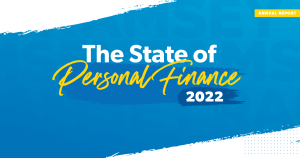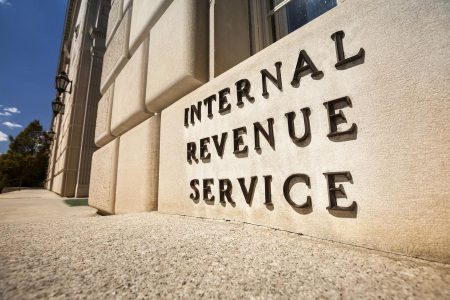Nina Olson of the Center for Taxpayer Rights and the Tax Analysts board of directors discusses the challenges in preserving taxpayer rights in light of increasing digitalization by the IRS and tax preparation companies.
This transcript has been edited for length and clarity.
David D. Stewart: Welcome to the podcast. I’m David Stewart, editor in chief of Tax Notes Today International. This week: ones and zeros.
We’ve often talked about the effects digitalization is having on existing laws for multinationals. In this episode, we’re taking a look at how digitalization is affecting the day-to-day collection and administration of tax systems.
Here to talk more about this is Tax Notes investigations editor Lauren Loricchio. Lauren, welcome back to the podcast.
Lauren Loricchio: Thanks Dave. Good to be back.
David D. Stewart: Now I understand you recently talked to someone about this. Who did you talk to?
Lauren Loricchio: I spoke with Nina Olson, executive director at the Center for Taxpayer Rights. She previously served as the national taxpayer advocate representing taxpayers at the IRS. I should note that she’s also on the Tax Analysts board of directors.
David D. Stewart: And what all did you talk about?
Lauren Loricchio: Our conversation touched on ongoing concerns for taxpayer rights as tax administration becomes increasingly digitized, including the IRS’s lack of transparency surrounding their implementation of artificial intelligence and the impact of tax preparation companies’ data sharing for taxpayers.
David D. Stewart: All right, let’s go to that interview.
Lauren Loricchio: Welcome to the podcast. So the Center for Taxpayer Rights recently held its ninth annual international conference with the theme, “Toward a Digital Taxpayer Bill of Rights.” Can you tell us about the conference, who attended, and what are some of the issues you discussed?
Nina Olson: Well, it was a really exciting time to be in person. This was the second one we’ve had in person since the pandemic. We did a number that were virtual and I think that what we were really able to bring together were people were striking from all over the world, whether they were in person in attendance or virtually, to talk about this issue of digitalization of tax administration and the traditional rights of taxpayers, whether you’re looking at it from a human rights perspective or from a perspective — a rule of law perspective or a tax administration perspective. Do the traditional protections, are they sufficient given digital tax administration?
And we organized the conference to look at three issues, three types of protections or rights that don’t really exist in any legal documents today necessarily, whether you’re looking at Europe or you’re looking in North America or even South America or Africa. And one of them is the right to transparency, which becomes very important when you’re dealing with artificial intelligence and automation. Not only is it that internally can people explain why you’re getting results that you are, but can you explain them to the taxpayer?
And so that really led to a discussion of explainable AI, and it also led to discussion of tax agencies are by definition paranoid about disclosing anything that would give anybody a clue as to their enforcement decisions. But on the other hand, if they’re going to use automation to make enforcement decisions or risk scoring or whatever, and they can’t explain it to the taxpayer, then at least in terms of United States concepts, that’s a violation of due process in my mind, that you cannot give the taxpayer adequate notice of what you’re looking at them for and then give them an opportunity to challenge that. So that was one of the fundamental rights that we were thinking: Do we need to have some kind of specific protections and requirements in terms of digital tax administration?
And then the second fundamental right was the right to fair treatment of the taxpayer. And there, which I think was a fascinating panel, we had three folks talking about three examples where there were abuses of taxpayers as a result of digitalization, to use a general term. And one was in the Netherlands, which was dealing with the childcare tax subsidy in which the then-Dutch government had to resign. It led to a coalition government; they are paying out billions of euros to the algorithm-targeted immigrants or the people who developed the algorithm, and the decisions [that] were made targeted the immigrants, and there was no proportionality to, if you made a simple mistake on something, just really a footfall, it triggered the entire liability of all the payments that you had received as part of this childcare tax subsidy.
The second example was the Robodebt client scandal in Australia, which again dealt with low-income individuals who were receiving benefit payments. And in this case it was being run through basically Australia’s welfare agency, but they were using tax data in a way that tax data was not designed to be used. And again, the damages to these people were severe and the government is having to pay significant, and when you see the dollar amounts, it’s significant.
And the third example was the research study, the IRS and Stanford research study that looked at the audit selection criteria and the disparity, the racial disparity in that. And so it really was a discussion, not so much talking about what AI does, but also where does the human being involve here? How are you using AI tools? What data are you feeding into the algorithm? What does it learn from? Where’s the oversight? And then where are the decisions that are being made based on that data? Is there an ability to object, but also what’s the review? And are the employees just deferring to the machine? Do they feel like they’ve got discretion?
And the last fundamental right that we thought really applied in this digital environment was the right to a human intervention, which kind of ties to the previous rights is like, OK, at some point you need to be able to talk to a human being. Decisions can’t all be made by machine, even the simplest ones. And so there we also had a discussion about what does the lack of a human intervention do to trust in the agency? And you see that the agencies are really thinking; there’s lots of grand language about how we can make this so that it’s so simple for the taxpayer, and you’ll never have to interact with an employee and you can do this all digitally and you can do it self-service. And it’s like, well, is that really what we need? In some of these instances when you’re doing enforcement actions against people, you need to have that conversation. People cannot necessarily communicate in writing.
That goes back very far to Goldberg v. Kelly, the United States Supreme Court decision about what constituted due process where you were trying to terminate welfare benefits. And one of the things that they said was written hearings where you’re conducting it totally by correspondence for this type of population is not sufficient process. There has to be the ability for someone who may not be able to articulate their issues, whether it’s because of fear or literacy, anxiety, whatever, or lack of understanding of the issues that they need to discuss. They need a human intervention.
And so these three things then, we took those three ideas or those three principles and then looked at, well, how do they apply to the different stakeholders? So how is the tax agency itself handling digital transformation and how is it impacting tax advisers? And then the last day we had some very vigorous discussions about digitalization and coding legislation, whether you can or you can’t, and then finally a panel on what the judiciary is going to do about this. And so it really flowed through the entire conference. Now the idea is that we will develop reports from each of these panels with recommendations and make that public in a special issue of Tax Notes, so we’re excited about that.
Lauren Loricchio: We know that the IRS is starting to expand its use of artificial intelligence. Do you have any concerns about the way that they’re rolling out? Could you tell us about that?
Nina Olson: Well, I have not been able to find articulated how precisely they’re using it. And so that’s my first concern. There has been a lack of transparency, if you will, on precisely in what systems they’re using it and why.
Secondly, I think if we can put that out there in discussion, then I would be able to have things to say. I will just talk that I am very concerned about what data the IRS is using to train the machines on and the algorithms on. If it’s using any data that it’s pulled from its past fraud detection system. That fraud detection system, although it stops a lot of returns — many of which are questionable — a large majority of them are not questionable, even ultimately found. The refunds are released and some of the filters that they’re using, et cetera, they have false positive rates of anywhere from 60 percent. There was one when I was the National Taxpayer Advocate that had a 91 percent false positive rate, which means that of the returns that it stopped, that it thought were questionable, that were high-risk scoring, 91 percent of them turned out to be legitimate. That’s unacceptable. That’s, as a friend of mine said, that is four times a coin toss. Think about that in terms of probability.
So if you’re feeding that kind of data into an algorithm whether it predicts or it identifies or whatever it does, then that’s very problematic. And that’s where you have to have both human beings in the mix, you have to have transparency in the mix so that people can see what you’re doing, just what data you’re using, and you have to have a review function and an audit function that involves not just the programmers and the people that are trying to detect the fraud, but you have to have chief counsel in there. You have to have the taxpayer advocate, and the IRS has to have data ethicists on its staff. It has to have people that are trained to identify when you are using data improperly and the downstream effects on that data.
Lauren Loricchio: Do you think the IRS should be releasing some information about, like you said, the data that’s going into the models?
Nina Olson: Absolutely. I mean, one model is Finland. Unfortunately, the person who was going to speak to us from Finland was not able to be there. But Finland has a model where they release the data, they release the model, they tell people what they’re doing when they’re using artificial intelligence. There’s a website that you can go to look at the structure. You have to know what, like if I went there, it probably wouldn’t mean anything to me, but people who are knowledgeable in the area can go there and look at it and have an understanding of what’s going on and critique it or point out things.
And I note that I was reading the other day the direct file report that the IRS issued post this filing season, and they in fact discussed that they’re considering making the code for direct file open source, which OK, so that’s great. Well then, why can’t you do some of this other stuff? And I think that’s going to be a challenge because I think, as I said in the beginning, tax agencies are notoriously averse to disclosing any information about why you were selected for any particular action. And that’s just amplified by when you are using digital tools, just partly because of the speed, partly because of the volume of data — the massive amounts of data that it uses.
Lauren Loricchio: Do you think that digitalization could lead to unfair treatment of taxpayers? Could you talk about that a little?
Nina Olson: Yeah. Well, that’s what we’ve seen. We have certainly seen it in the Netherlands and that case is ongoing. Part of what I was doing when I was over there, I went from Antwerp to The Hague for a seminar because the Dutch government, the coalition government that replaced the resigned government, their first article of the coalition agreement was to establish a taxpayer advocate office like in the United States, thinking that this would not have happened or it would’ve been caught much quicker if there had been a robust taxpayer advocate service in the Netherlands.
And I went over there in 2022 to meet with finance ministry and the new inspector general over the child support initiative and several private advocates, and then a group of people came over to the United States, met with the current taxpayer advocate, met with me for hours and issued a report. And then since we were over in Antwerp, we went back to the Netherlands to meet with the finance minister and the person who has been appointed to issue a report and to make recommendations for the establishment, and then we had a seminar about the taxpayer advocate office.
And you can see in that initiative what happened in the Netherlands. And there are many different sources. You had an algorithm that was using data, but the algorithm was actually in a way directed that one of the risk factors was that you were an immigrant and receiving these benefits. And so the algorithm identified immigrant families as fraud committers, people who committed fraud in this program. But the decisions of the agency were that they felt under the legislation that they had no discretion, so there was no ability for a human intervention. And there was also no ability, no one told the families why they were being targeted, why they were being accused of fraud. And so you have a complete lack of transparency. You have a lack of equal treatment, and you have a lack of human intervention that is a roadmap for what you should not do.
And not to beat up on the Netherlands, but there was another case where just nationally, they’d created a national database that was fed by about, oh, I don’t know, 17 different agencies with data. And it was used then the agencies could query it to identify fraud or risk, high risk in whatever program they were administering. And once somebody was identified by fraud, then there would be referrals made to the prosecution service and the police for action. And no one could explain how this system with all these databases operated. And ultimately, the district court in The Hague, not the international court, but the district court for The Hague, declared that this system violated the European Convention on Human Rights because there was no transparency, there was no explainability. You couldn’t explain why people were being selected, and therefore, how could people defend themselves against these accusations?
Basically, in our parlance, it was a violation of procedural due process, the right to having notice of the government action and then the ability to challenge it and be heard. What happens, and I think this goes to it, that if you’re not careful, you will first put your own human biases into the algorithm, which will then be exacerbated by the algorithm itself. I mean, the algorithm doesn’t have intent. It’s what humans feed into it. And then as well, the humans rely on the result of the algorithms without knowing why the result happened because it’s a black box, and then they feel like they can’t question the algorithm. And then the taxpayers who come in say, “Why are you doing this? Why do you say this?” And you don’t know why the decision was made, so how can you defend yourself against it? So I think there’s a very great capacity for violation of rights.
Lauren Loricchio: Do you think the IRS is aware of these issues and is taking them into consideration as it considers expanding its use of AI?
Nina Olson: I know I’ve talked to people there about it. I don’t know how they’re addressing it. I am very concerned about it, and that’s partly why we’re going to work a digital taxpayer bill of rights for all tax agencies and actively try to get them to sign onto it and commit to it.
Lauren Loricchio: You’ve raised some concerns before about how tax prep companies are collecting and sharing data. Can you tell us about that a little bit?
Nina Olson: Yeah, so that goes to the work that the markup did about the Meta Pixel, and it’s not just about tax prep companies because the markup’s original work was looking at things like your MyChart and how data was being shared from the MyChart and also from the Department of Education where the Meta Pixel was embedded in the FAFSA form and the Department of Education didn’t even know it. And so very important personal information was being transmitted and utilized for advertising without the taxpayers’ consent. And they ultimately identified that with several of the major tax prep companies.
And I have a very great stake in that because when I was the national taxpayer advocate, it was a major initiative to write the regulation under 7216 of the Internal Revenue Code, which makes it unlawful for a tax preparer, defined incredibly broadly — including software companies and software programs — to use or disclose tax return information, taxpayer information without the taxpayers’ explicit and specific consent to that use or disclosure.
And we worked, we met a lot with, we and Treasury and chief counsel, we worked very hard on that regulation, and it was really designed to provide maximum protection to the taxpayer while trying to acknowledge that there are certain disclosures that are necessary in the course of return preparation. Just within an accounting firm, you would need to disclose to a clerical person, etc. And so if you look at the regulation, I think it’s a really good example of a regulation, how it tried to balance competing concerns but came out very strongly for consumer protection.
And the problem is that it’s a criminal regulation. I mean, it’s a criminal statute, and so you need the Department of Justice to do some prosecutions on it. The investigations under 7216 are conducted by the inspector general, the Treasury Inspector General for Tax Administration, and then if TIGTA finds a violation of 7216, they make a referral to the Justice Department. And I’ve been told by congressional staffers that when they question TIGTA about those referrals, TIGTA representatives said that Justice is not particularly interested in one little violation like that. They’re usually looking at 7216 as a violation as part of another felony, another crime, another tax crime. So there aren’t any, that we can find, standalone prosecutions for 7216. TIGTA did confirm that each return in which there was a disclosure would be a separate violation and a separate charge. So you can think about if there really is a violation of 7216 by any of these software companies, they’re looking at significant charges.
Lauren Loricchio: Just kind of thinking about all of this, do you think there are enough guardrails in place to protect taxpayers as we move toward more of a digital environment?
Nina Olson: Well, I’ll tell you, I don’t think that 7216 needs to be changed. I think that the IRS needs to do a better job policing the software companies, and I don’t see that happening at this point. I’m very critical of the IRS in that regard. Why the markup needed to find this out and the IRS didn’t know is something that taxpayers should be very angry about.
The other thing I think that needs to be changed legislatively is that I think that you need to amend, and I think it’s 7431, I’ll have to check that, but you’ll need to amend that statute, and that’s the statute that gives people the right to sue the Secretary of the IRS or a contractor where there’s been a disclosure of 6103 information. I think you need to incorporate a 7216 violation in there and create a private right of action for the taxpayer against the tax return preparer if they have recklessly and intentionally or negligently violated 7216 or 6713, which is the civil counterpart.
And we have that kind of private right of action against IRS officials where they’ve taken reckless or intentional disregard of the statutes in the arena of collection. And it can go up to a $1 million for reckless intentional, and $100,000 for negligent. And I think why not there? Why not? That would be a chilling effect for some of these software companies from trying to actively share this information for their own profit, so that’s kind of where I am.
Lauren Loricchio: The IRS recently announced that the Direct File program will be a permanent option for federal tax filing starting in 2025. Do you think this is good news for taxpayers?
Nina Olson: Oh yeah. I mean, my position since 2002 or 2001 is we need filing with the government, and the IRS has finally joined the majority of the rest of the world. Just at our conference, three days or so before our conference, Greece had just launched another app, its updated app, and it’s just incredibly simple that on a phone you can get access not just to filing your return, but you can see everything about, you can see your account on your phone, you can see the communications, you can see what you paid, you can make a payment, you can file your return, you can download information. I mean, the commissioner of the Greek revenue’s already showed me his account. It’s very nice.
So this is a step, and I think this comes out in the IRS’s report, that it’s part of a broader strategy of making a robust online taxpayer account so that not only can taxpayers file their returns, but they can communicate with the IRS digitally, which is good as long as you also have that right to human intervention.
Lauren Loricchio: The American Coalition for Taxpayer Rights, they represent tax return companies like Intuit and H&R Block, they’ve argued that the IRS should just expand Free File. What do you think about that?
Nina Olson: Well, I think that they’re not representing taxpayer rights, as I’ve written in Tax Analysts, in Tax Notes, Procedurally Taxing. The right to file a return free of charge with the government, with the government is a fundamental taxpayer right. And I don’t see it as any conflict with the private sector offering products that offer things that maybe the IRS wouldn’t do. And I don’t see it as any problem that the software companies — I’ve said this for years — that the IRS should be able to populate a return with the data it has, and taxpayers should also have the choice to use the products that they want to use, and they should be able to download the information from their online account into another product. And the IRS has signaled that that’s what they want, and I think that’s, with the appropriate safeguards.
I think if these products are going to get information from the taxpayer account, then that verification that people had to do to use Direct File, namely going through ID.me or some other authentication, is going to have to be done on those other products because otherwise you can’t get access to your online account. And so that’s going to change the game.
But the other thing is, I mean, people have spoken for decades about Free File. It’s been two million, three million people year after year after year that have used it. Now I am one of the people that uses free fillable forms because I do not want to pay a software company for the privilege of filing my taxes, and I don’t have any other options other than paper. And now eventually Direct File will allow me to file my taxes directly with the government, and I will certainly do that, and I think there will be others that do that, but I also think that there will be others that will continue to use the products because they like the Q&A, they like the ability to link to your brokerage account, all those things.
So what we’re really talking about that they’re all upset about is that they’re losing the ability to sell ancillary products and get data from the most vulnerable taxpayers in the United States. And there I’d say, well, those are the taxpayers that in particular the government should provide a product for. And it’s not a product, it’s an endemic, fundamental duty. It’s as if this coalition would argue that the government printing office should not have been printing the form 1040 all these years, only it’s competing with the private sector that they want to print it. I mean, that’s an absurd statement. The government needs to do a digital, it’s a digital analog of paper returns, and that’s what Direct File is.
Lauren Loricchio: Did you have any final thoughts?
Nina Olson: I’ve been flummoxed for a while as to why this is still an issue because the IRS has renewed the Free File agreement, so there’s choice there. It has not in any way made it difficult for the software companies. It’s not enforcing 7216, and so they basically have the market share. They will not lose market share. They may lose a group of taxpayers that they have been making money off of that in my opinion, they should not be making money off of, and that the government can certainly provide that assistance. And they will also, then they never had people like me who don’t want to pay for a product and either filing on paper or looking forward to filing through a free fillable forms or some equivalent. So I just don’t see it. I’m not being naive. I’m literally saying I don’t see this as an issue. And it’s something that they can adapt to and find other things to fill whatever revenue gap they might have in losing the vulnerable taxpayers.
Lauren Loricchio: Well, thank you so much for talking with me today about this and for joining us on the podcast.
Nina Olson: Thank you for this opportunity. It was great to chat with you.
Read the full article here
















